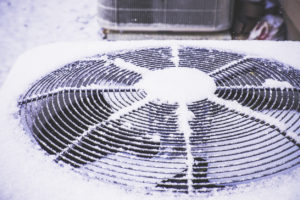A variety of factors can cause some of us to feel the heat or the cold more acutely than others. Sometimes it's age; other times it's illness. For still others, it's just how we are. We each tend to have an internal thermometer that tells us our optimum temperature.
But for some vulnerable household members, their health may depend on maintaining a certain temperature. Fortunately, there are ways to do this without sacrificing efficiency or comfort for other members of the household.
Why Too Cold or Too Hot?
Vulnerable household members may suffer from being too hot or too cold for a variety of reasons. When people are too cold, it might be because of:
Poor circulation. This is often due to age.
Low body fat. Fat insulates.
Low muscle tone. Muscles also help insulate the body.
Tall people are often colder because circulating blood has more area to cover.
Dehydration can make us feel colder.
Gender can have an effect, with women feeling colder (in general) than men because of genetic factors that make it harder to regulate body temperatures.
Illnesses including thyroid problems, diabetes, and iron deficiency may make people feel cold.
Vulnerable household members who feel too hot may experience these conditions: being overweight; hyperthyroidism; and taking medications such as certain antidepressants, hormonal medications, antibiotics, pain relievers, and/or heart and blood pressure drugs. They might also suffer from diabetes or fibromyalgia.
How to Regulate the Temperature for Vulnerable Household Members
Any home may have hot or cold spots, inspiring requests to raise or lower the thermostat. One way to help vulnerable household members is to install a zoned system so that these individuals can control the temperature in the area of the home they live in. Other solutions include:
Repairing faulty ductwork.
Inspecting vents to make sure they work properly.
Insulating rooms to help hold in the heat or AC.
Adding window treatments to block sun in rooms that are too hot.
Fixing leaks around windows with caulk and weatherstripping.
For more on helping vulnerable household members feel more comfortable without sacrificing HVAC efficiency, contact Air Assurance of Broken Arrow.









